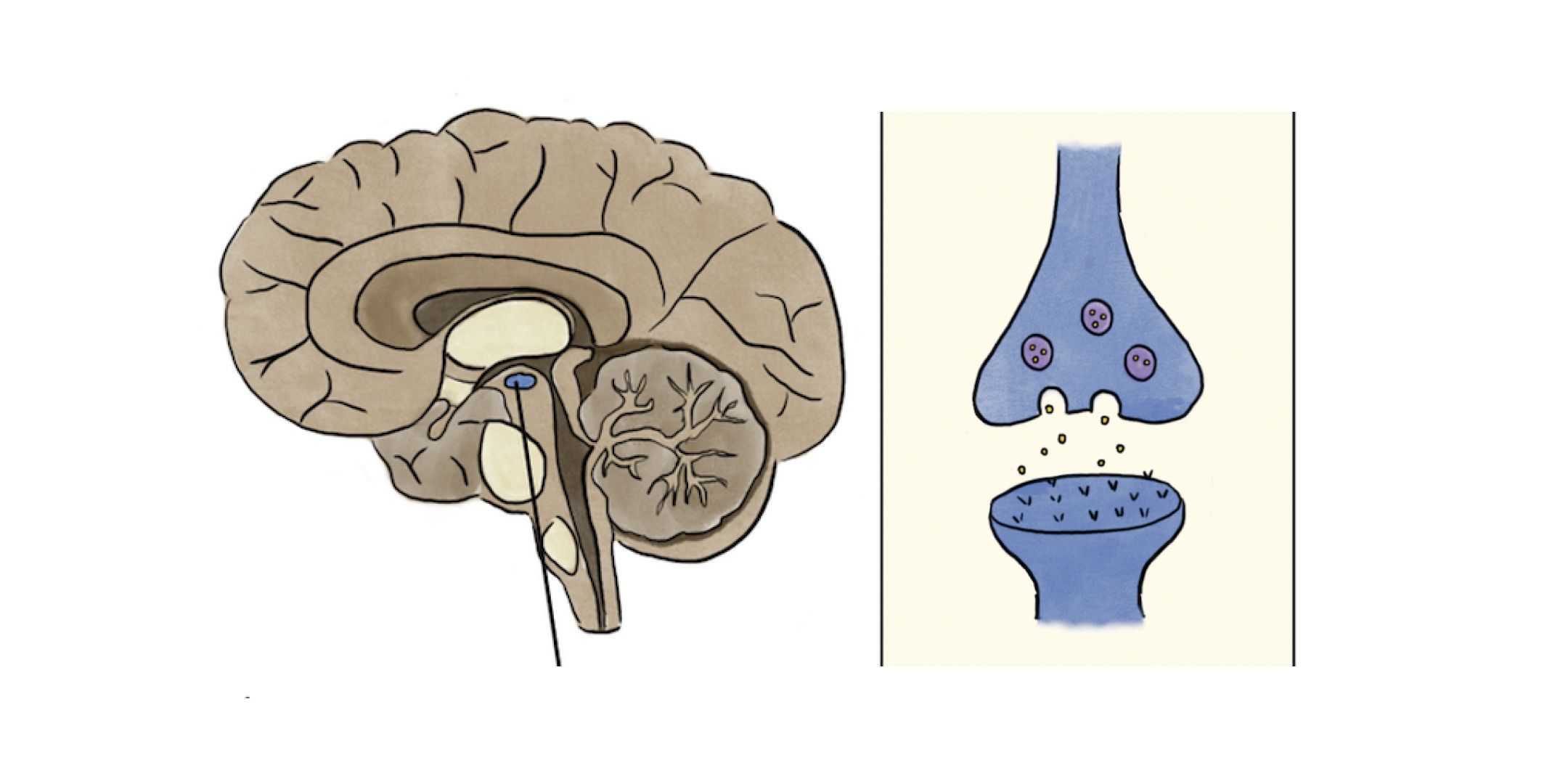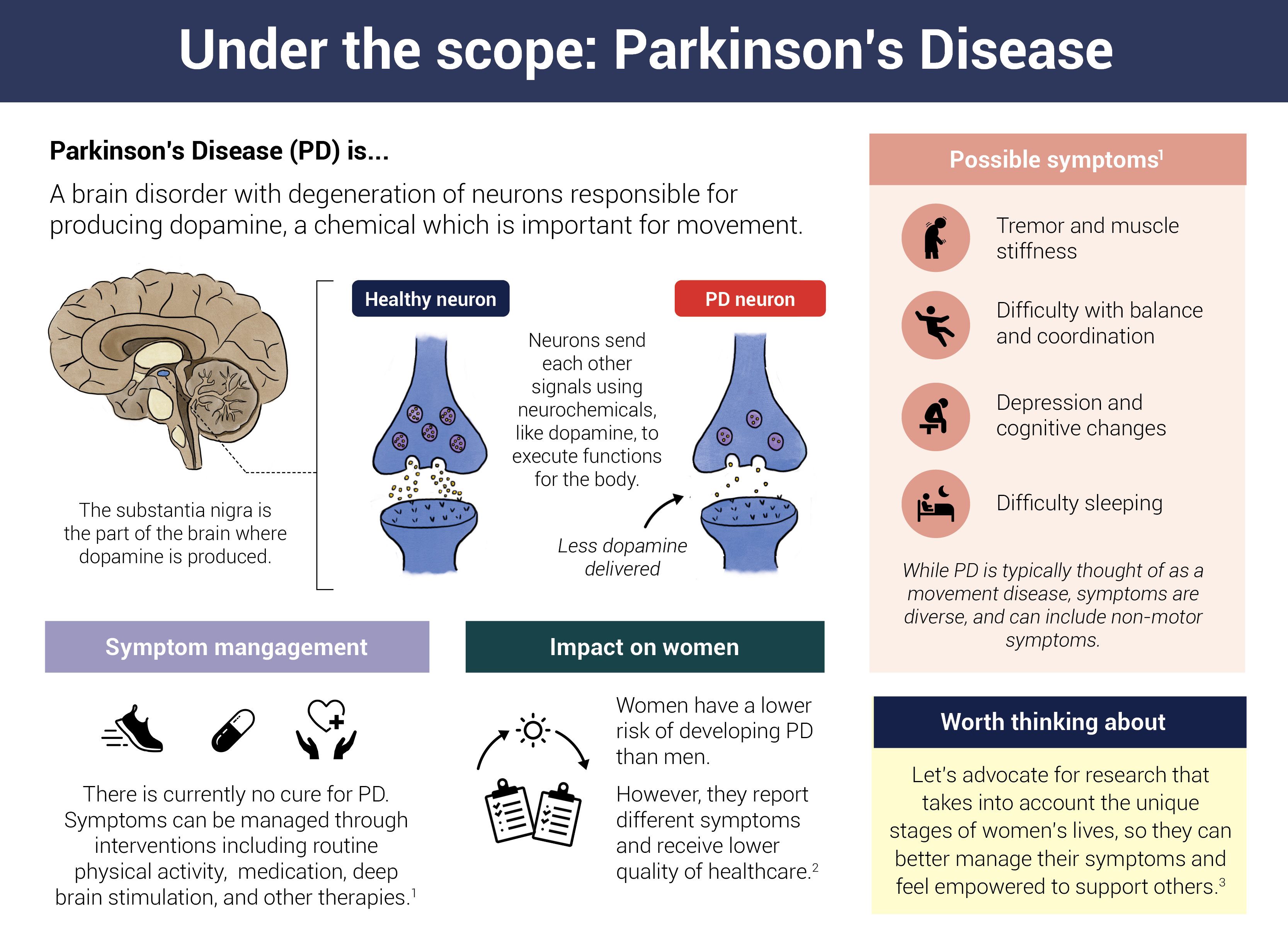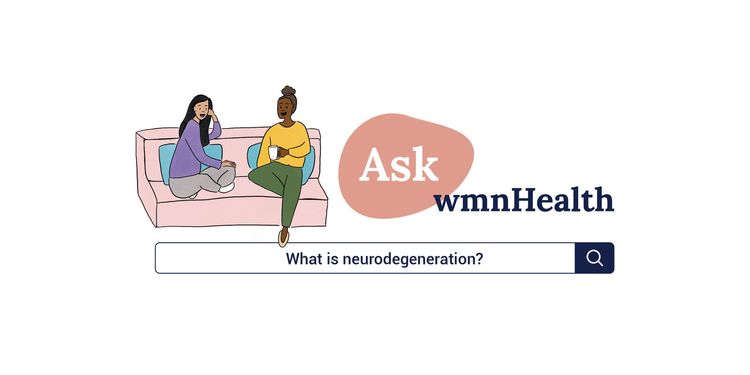

Parkinson's disease, already the second-most common neurodegenerative disease in the U.S., is on the rise, meaning more people than ever before will be affected by the disease in the coming decades. About half will be women.
Yet, little attention has been paid to sex and gender differences in Parkinson's disease, despite the fact that women report different symptoms, have greater day-to-day fluctuation in their symptoms, and receive lower quality of care than men.
"Current literature is scarce and conflicting with how this disease affects women. There are currently no expert opinion guidelines on how to manage PD symptoms in [women]," write Dr. Soania Mathur, Kat Hill, and Dr. Kristi LaMonica in a commentary about women and PD.
Past studies have tended to focus on biological differences between men and women, rarely taking into account the major psychological and social differences that may contribute to the disease and the quality of life of the women it affects.
Here are some of the urgent, outstanding questions about sex and gender in Parkinson's disease:
- Does Parkinson's disease manifest differently in women compared to men?
- What role do hormones like estrogen play in the disease including its onset, progression, and treatment?
- Why is the risk of Parkinson's lower for women? And do reproductive factors influence the risk of developing the disease?
- Are there differences in non-motor symptoms of Parkinson's in women compared to men, such as cognitive impairment, depression, sleep disturbances, and autonomic dysfunction?
- Why do women report more fluctuations in their symptoms than men? And why do women respond differently to some Parkinson's therapies?
What are the effects of Parkinson's medications on women, specifically? - Are there lifestyle modifications and disease-modifying treatments that might work better in women than men?
- What are the barriers preventing women from receiving better care for Parkinson's?
Individual researchers, women living with Parkinson's, and organizations like the Parkinson's Foundation and the PD Avengers are mobilizing women with the disease and advocating for more research on sex and gender differences.
References:
1. Parkinson's Disease, National Institutes of Health (Accessed June 9, 2023)
2. Women and PD, Parkinsons.org (Accessed June 9, 2023)
3. Subramanian, I., et al. Unmet Needs of Women Living with Parkinson's Disease: Gaps and Controversies. Movement Disorders, Vol. 37, No. 3, 2022
Subscribe to our newsletter
Get a weekly roundup of articles, inspiration, and brain health science in your inbox. Subscribe now.


